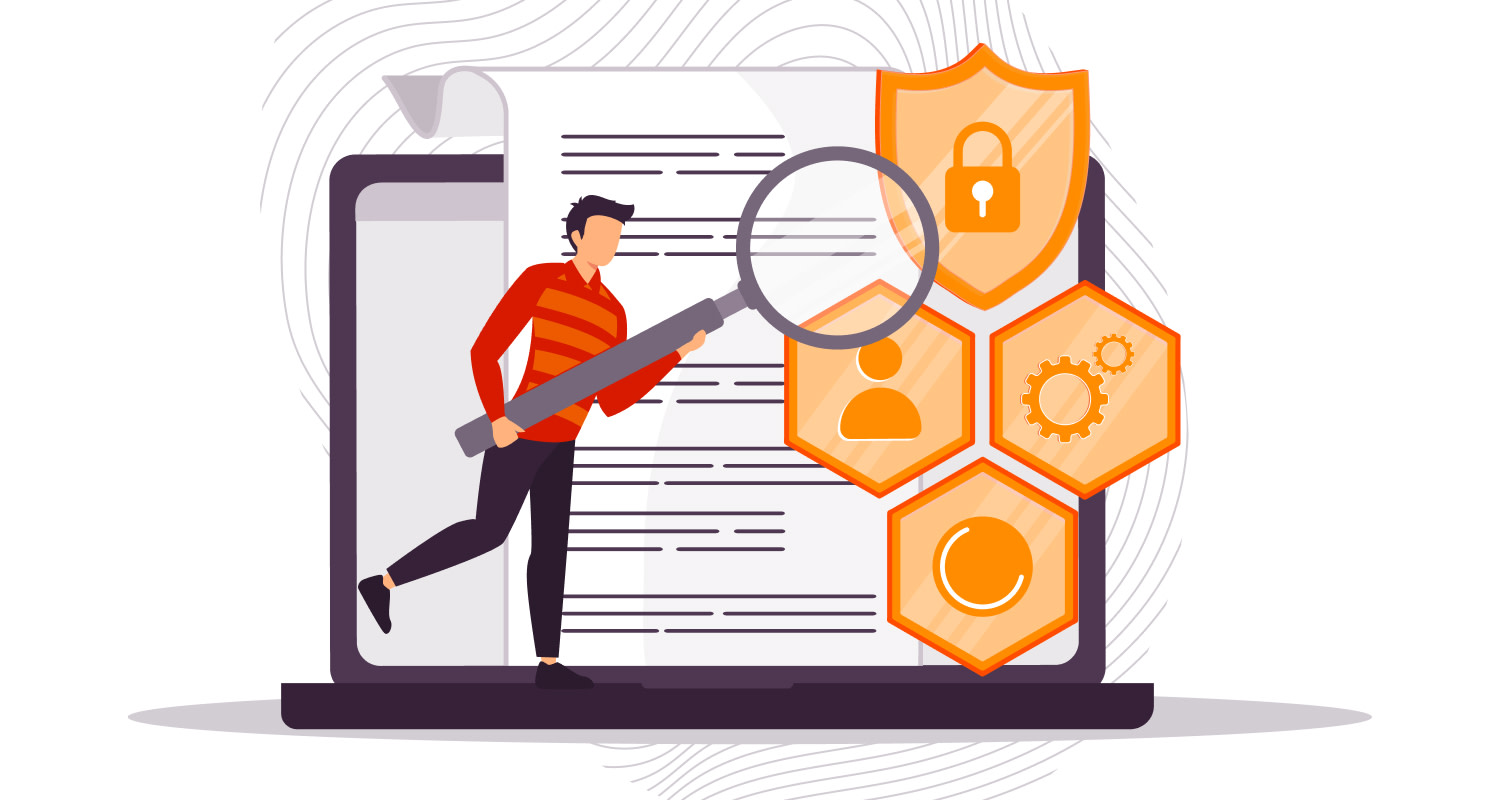//
Jun 15, 2023
Data Protection Laws: A Comprehensive Guide for Marketing Compliance
In the current digital era, data privacy has become a critical issue for businesses and their customers.
Data breaches are rising and people are becoming more aware of the need to protect personal information. As a result, governments worldwide are introducing new data privacy laws to protect people's rights.
As a business owner, it is essential to understand how new regulations will influence your marketing strategy. Necessary adjustments must be made to comply with them.
The Importance of Data Protection Laws: Safeguarding Personal Information

Data privacy laws exist to regulate how businesses collect, store, and use personal data. By enforcing strict guidelines, these laws aim to prevent unauthorized access, data breaches, and misuse of personal information. This ensures that individuals have control over their data and can make informed decisions about its usage.
The Facts:
- reported over 1,100 data breaches in the US in 2020. These breaches compromised 155 million individuals' records.
- conducted a survey and found that 72% of consumers trust companies enough to share their personal information. They believe the companies will protect their data.
- According to the , privacy concerns have led 50% of Americans to refrain from using a product or service.
New Data Privacy Laws Are Quickly Approaching: A Quick Overview
Alt text: New data protection laws are emerging, such as the , going into effect July 2023, and the .
In recent years, we have seen the introduction of major data privacy laws like the in Europe and the in the United States.
New data protection laws are emerging, such as the , going into effect July 2023, and the . These upcoming regulations will impose additional obligations and accountabilities on businesses, further strengthening data privacy measures.
WATCH: at the Watercooler conversation between Cameron Burns, the co-owner of Denver-based Watermark Agency, and our Digital Sales Consultant Darby Kim as they delve into the details of the Colorado Privacy Act (CPA).
Here’s a look at these new laws’ impact on marketing and sales strategies:
Impact on Marketing Strategy

The implementation of new data protection laws can have a significant impact on your marketing strategy, necessitating careful adjustments. With the increasing focus on privacy and data security, businesses must adapt to the evolving regulatory landscape.
Compliance with these laws requires a comprehensive understanding of the regulations and how they affect your marketing practices. You may need to review your data collection and storage processes, ensure explicit consent from customers, and provide transparent information about data usage.
This might involve revisiting your customer relationship management (CRM) systems, updating privacy policies, and implementing robust data protection measures. Moreover, marketing campaigns may need to be reevaluated to align with the new legal requirements, which could include refining targeting strategies and adjusting messaging to ensure compliance and build trust with consumers.
Here are some critical areas to consider:
Transparency and Consent
Recent data privacy laws focus on transparency and regarding data collection and usage. This implies that businesses must provide clear details on how they collect and utilize customer data, obtaining explicit consent before gathering any information.
What to do: Review and update privacy policies while providing options for customers to actively opt-in to data collection.
Targeted Advertising
New data privacy laws can impact , requiring businesses to obtain explicit consent before using personal data.
What to do: Reassess targeted advertising strategies and consider alternative marketing approaches that don't rely heavily on personal data.
Email Marketing
Email is another area that may be impacted by new data protection laws. Businesses must obtain explicit consent from individuals before sending them .
What to do: Now you must provide and ensure that individuals can opt-out anytime.
LEARN MORE: HubSpot explains .
Lead Generation
New data privacy laws will also affect . Businesses must obtain explicit consent from individuals before collecting their data for lead generation purposes.
What to do: Provide clear information about how the data will be used and ensure that individuals can opt-out anytime.
Customer Relationship Management (CRM)
Building and maintaining customer relationships through CRM systems necessitate careful adherence to data privacy laws. Businesses need to ensure that their , including provisions for users to access, modify, and delete their data.
What to do: Implement robust security measures to protect customer information within your CRM.
Want to get the most out of your CRM?
The takeaway?
By adapting your marketing strategy to comply with new data privacy laws, you can build trust with your audience and ensure the long-term success of your business.
With careful consideration of transparency, targeted advertising, email marketing, lead generation, and CRM, you can maintain successful customer relationships while respecting privacy rights.
Changes in Data Collection and Storage: Implications for B2B Sales Strategies
In the ever-changing world of data privacy rules, B2B businesses must carefully follow the updates in how data is collected and stored. The new data privacy laws highlight the importance of getting clear permission from people before gathering and using their information.
This shift significantly impacts B2B marketing and sales strategies, impacting how businesses gather and leverage data to drive growth.
FIND OUT: What’s your marketing strategy? Don’t have one? We can help. Check out our
Let's delve into how these changes specifically impact your sales and marketing efforts.
Prioritizing Consent-Driven Marketing and Sales:
Consent has always been a fundamental aspect of data privacy, but under the new laws, it becomes more critical than ever.
Here’s an example of a consent banner implemented on our site. We can help you do the same!

B2B businesses must obtain explicit consent from individuals before collecting and utilizing their data for marketing and sales purposes. This means revisiting your lead generation strategies and ensuring that all prospects have provided informed consent to receive communications from your business.
A consent-driven approach builds trust and fosters stronger relationships with your target audience.
Limitations on Data Retention:
New data privacy laws often limit how long businesses retain customer data.
This highlights the importance of establishing proper data management practices within your organization. B2B marketers and sales teams must ensure that they have mechanisms to regularly review and delete outdated or unnecessary customer data.
By aligning with these regulations, you not only mitigate potential compliance risks but also streamline your data storage practices, ensuring that you have accurate and up-to-date information to inform your marketing and sales strategies.
LEARN: Leverage your current CRM or upgrade to meet compliance requirements. Learn how in our free .
Enhancing Data Security Measures:
Data security has always been a paramount concern, but the new laws further emphasize the need for robust data protection practices. B2B businesses must prioritize implementing appropriate encryption and security measures to safeguard customer data.
This includes adopting secure data storage systems, implementing access controls, and regularly auditing your data security protocols.
By demonstrating your commitment to data security, you instill confidence in your prospects and customers, enhancing your reputation and fostering trust.
The takeaway?
By proactively adapting your B2B marketing and sales strategies to comply with the evolving data privacy laws, you position your business as a trusted partner.
Prioritizing consent-driven marketing and sales, implementing robust data security measures, ensuring transparency, and staying compliant will differentiate your business and strengthen your relationships with prospects and customers.
Safeguarding B2B Marketing and Sales Data
In the age of stringent data privacy regulations, B2B businesses must prioritize data security to protect sensitive marketing and sales data.

Introducing new laws mandates robust encryption and data protection practices, placing data security at the forefront. Additionally, businesses must promptly notify authorities and affected individuals during a data breach.
Let's explore how these enhanced data security measures impact your B2B marketing and sales strategies:
Robust Encryption and Protection Practices:
Under the new data privacy laws, B2B businesses must implement robust encryption and protection practices to secure customer data. Encryption acts as a safeguard, rendering data unreadable to unauthorized individuals.
By adopting strong encryption protocols, such as end-to-end encryption, you ensure that sensitive marketing and sales data remains confidential and protected from unauthorized access. Incorporating encryption into your data management systems and practices establishes a solid foundation for data security compliance.
Prompt Breach Notification:
In the unfortunate event of a data breach, businesses must promptly notify authorities and affected individuals.
This underscores the importance of having a well-defined incident response plan in place.
B2B marketers and sales professionals should collaborate with IT and legal teams to establish clear procedures for identifying, containing, and responding to data breaches.
By promptly notifying the relevant parties, you demonstrate transparency, mitigate potential damages, and maintain compliance with data privacy laws.
Data Security Audits and Compliance Assessments:
For strong data security, B2B businesses should regularly conduct audits and compliance assessments. This helps identify vulnerabilities in marketing and sales data systems, allowing proactive risk mitigation.
Collaborate with IT and cybersecurity experts to evaluate existing practices, implement updates, and ensure compliance with regulations.
Regular audits and assessments showcase your dedication to data security, providing reassurance to prospects and customers.
Employee Training and Awareness:
Data security is everyone's responsibility. B2B businesses should prioritize employee training and awareness programs to establish a data security culture within the organization.
Ensure your marketing and sales teams understand the significance of data protection, proper handling of customer information, and best practices for secure data management.
By equipping your employees with the necessary knowledge and skills to identify and address security risks, you strengthen your defense against data breaches and improve overall data security.
By embracing enhanced data security measures, B2B businesses strengthen their resilience against potential threats and build customer trust. Prioritizing robust encryption and protection practices, establishing incident response plans, conducting regular audits, and investing in employee training contribute to a proactive and vigilant data security strategy.
The takeaway?
Emphasizing data security not only ensures compliance with regulations but also differentiates your business as a reliable partner committed to safeguarding sensitive marketing and sales data in the B2B landscape.
Navigating Restrictions on Targeted Advertising: Adapting B2B Marketing and Sales Strategies
As new data privacy laws come into effect, B2B businesses must be prepared for potential restrictions on targeted advertising practices. These regulations may limit personalized advertising without explicit consent, impacting ad targeting and segmentation strategies.

You must explore alternative approaches to effectively reach your audience.
Here’s how:
Limits on Personalized Advertising:
Under the new data privacy laws, personalized advertising may require explicit consent from individuals.
B2B businesses must obtain permission from prospects and customers before delivering personalized ads based on their preferences or behavior. As a result, your ad targeting and segmentation strategies may need to be adjusted to align with these consent-driven requirements. It is essential to reassess your current practices and ensure that you have mechanisms to gather and manage consent effectively.
Exploring Alternative Ways to Reach Your Audience:
To navigate the restrictions on targeted advertising, consider exploring alternative methods to engage your audience effectively. One approach is to focus on contextual advertising, where ads are displayed based on the webpage's context or content being consumed.
By aligning with the relevant context, you can still deliver targeted messages without relying on personal data.
Additionally, leverage first-party data, such as opt-in information and customer preferences, to create personalized experiences within the boundaries of consent and privacy regulations.
Emphasizing Value and Thought Leadership:
As targeted advertising becomes more restricted, shift your focus to delivering value and establishing thought leadership within your industry. Invest in that educates, informs, and engages your target audience.
By positioning your business as a trusted authority and providing valuable insights, you can attract prospects and build stronger relationships. Implement content marketing strategies, thought leadership pieces, and educational resources to nurture leads and foster meaningful connections with your audience.
Leveraging Account-Based Marketing (ABM):
Account-Based Marketing (ABM) is a strategic approach targeting specific accounts rather than broad audience segments. By tailoring your marketing and sales efforts to individual companies or key decision-makers within those companies, you can deliver personalized messaging and experiences while adhering to consent requirements.
ABM allows you to build customized campaigns, engage stakeholders, and create personalized touchpoints, leading to more effective lead generation and conversion.
WATCH: Watermark’s digital marketing and analytics expert, Aaron, .
The takeaway?
As restrictions on targeted advertising come into play, B2B businesses must adapt their marketing and sales strategies.
By prioritizing consent-driven approaches, exploring alternative advertising methods, emphasizing value and thought leadership, and leveraging account-based marketing, you can continue to reach and engage your audience effectively while respecting data privacy regulations.
Embracing Accountability and Transparency: Meeting B2B Marketing and Sales Expectations

As new data privacy regulations emerge, B2B businesses face heightened demands for accountability and transparency. Compliance with these regulations necessitates clear privacy policies and disclosures that inform customers about data practices. Moreover, businesses must prioritize respecting data subject rights, including the rights to access and erasure.
Here is how accountability and transparency regulations impact B2B marketing and sales strategies:
Clear Privacy Policies and Disclosures
New regulations require B2B businesses to create transparent privacy policies and disclosures. These documents clearly state how you collect, use, and store customer data, building trust and confidence.
Regularly review and update your policies to comply with changing regulations and make them easily accessible to your audience.
Compliance with Data Subject Rights:
Respecting data subject rights is vital in data privacy regulations. B2B businesses should be ready to handle individual requests to access, correct, or delete their data. Implement efficient processes to address these requests promptly and securely.
Data Governance and Documentation:
To uphold accountability and transparency, establish a strong data governance foundation. Implement comprehensive frameworks and practices to handle, store, and protect customer data. Maintain detailed data , including purposes, legal bases, and consent obtained.
Effective data governance ensures compliance and enables analyzing and optimizing marketing and sales strategies using reliable data.
Communication and Education:
Communicate your commitment to accountability and transparency to your audience. Educate your customers, prospects, and employees about your data privacy practices, emphasizing your dedication to protecting their personal information.
Regularly engage with your audience through clear and accessible channels, providing them with updates about changes in privacy policies or data practices.
By fostering open communication and education, you build trust and demonstrate your commitment to data privacy.
The takeaway?
Embracing accountability and transparency sets B2B businesses apart in the era of data privacy. Prioritize clear privacy policies, comply with data subject rights, establish strong data governance practices, and communicate openly with your audience. This builds trust, strengthens customer relationships, and positions your business as a responsible data steward.
Adapting Your B2B Marketing Strategy: Thriving in the Era of Data Protection Laws
As new data protection laws reshape the marketing landscape, B2B businesses must proactively adjust their strategies to thrive in this evolving environment.
To navigate the impact of these regulations, consider the following key adjustments:
Prioritizing Consent-Driven Marketing
Obtaining and managing consent becomes paramount in the wake of new data privacy laws. Make it a top priority to implement strategies that prioritize consent-driven marketing.
Focus on incentivizing customers to willingly opt-in to your communications and provide clear mechanisms for them to control their data preferences.
By fostering a culture of consent and respect for individual privacy, you establish a solid foundation for building long-lasting relationships with your target audience.
Customizing Marketing Strategies for Optimal Personalization:
While data privacy laws may restrict personalized marketing, there are still opportunities to deliver targeted messaging within the boundaries of consent and privacy regulations. Focus on leveraging the data that customers willingly provide to create personalized experiences.
By tailoring your marketing strategies based on the explicit preferences and interests of your audience, you can still deliver relevant content that resonates with their needs and challenges.
Investing in Data Security and Compliance:
As data privacy becomes a top priority, allocate resources to ensure robust data security and compliance with the new regulations. Implement stringent data protection measures, including encryption, secure data storage, and regular audits. Continuously monitor and update your data security practices to align with evolving industry standards.
By demonstrating your commitment to data security and compliance, you instill confidence in your customers and prospects, reinforcing trust and positioning your business as a reliable partner.
Partner with for data privacy implementation and compliance. Contact us today to find out how.
The takeaway?
By adjusting your B2B marketing strategy to prioritize consent-driven marketing, emphasizing transparency and trust-building, customizing marketing strategies for personalization, and investing in data security and compliance, you can successfully navigate the impact of new data privacy laws.
Ensuring Compliance, Saving Costs, and Partnering with an Expert Agency

In the ever-evolving landscape of data privacy, businesses must prioritize compliance with new regulations while optimizing their operational efficiency. Engaging legal and compliance teams becomes crucial to ensure marketing practices align with the new requirements.
Partnering with an agency that understands the intricacies of data privacy and can navigate the complexities of compliance offers several advantages
Expert Knowledge of Data Privacy Requirements:
An agency specializing in data privacy regulations brings in-depth expertise and up-to-date knowledge of the latest requirements. They understand the nuances of regulations like the GDPR, CPRA (CCPA amendment), CPA, CDPA, and more, enabling them to guide your business on the best practices for digital privacy compliance.
By leveraging their expertise, you can avoid costly mistakes and ensure your marketing strategies align with the regulations.
Cost Savings in Installation, Maintenance, and Management:
Implementing and managing tools for data privacy compliance can be resource-intensive. An agency can recommend and install tailored products with the appropriate amount of privacy controls, and data storage, and make sure it stays up to date with the changing regulatory environment.
Partnering with an agency helps ensure the installation, maintenance, and management of these solutions.
Managing Consent Preferences:
Managing consent preferences is crucial for data privacy compliance. An experienced agency can help integrate consent management solutions, including frameworks for ePrivacy, GDPR, CPRA, and LGPD compliance.
Register of Data Processing Activities:
To comply with privacy laws, companies must maintain a comprehensive record of their data processing activities. An agency well-versed in data privacy can help you implement a Register of Data Processing Activities solution, simplifying the documentation process.
The takeaway?
Teaming up with an agency familiar with data privacy requirements offers multiple advantages. Expertise ensures compliance, saves costs by handling installation and maintenance, and provides access to the right tools for consent management and data documentation.
In Summary, The Regulatory Environment is Changing
As B2B companies adapt to new data privacy laws, it's crucial to understand how they impact marketing, advertising, and digital sales activities. Compliance with regulations while maintaining customer engagement is key. By adjusting marketing strategies, prioritizing compliance, and partnering with a knowledgeable agency, B2B companies can successfully tackle data privacy challenges.
Partnering with a digital agency versed in data privacy is no longer an option but a necessity for organizations small and large doing business across the US or the world. With the right agency by their side, B2B companies can confidently navigate the complexities of data privacy and thrive in the ever-changing digital world.
Partner with Watermark to Navigate New Data Privacy Laws for Your Digital Content
Take charge of data privacy compliance for your digital content. Partner with Watermark to implement and navigate new privacy laws seamlessly. Let our experts guide you through the process and ensure your business stays on top of data privacy regulations.
today to safeguard your digital content.
Looking for marketing solutions?
Look no further. Discover the that work together to help your business meet its goals and grow. As B2B marketing experts, our ultimate aim is to aid our clients in realizing their core business goals. We operate as an , dedicated to empowering our clients to achieve meaningful and sustained growth.







